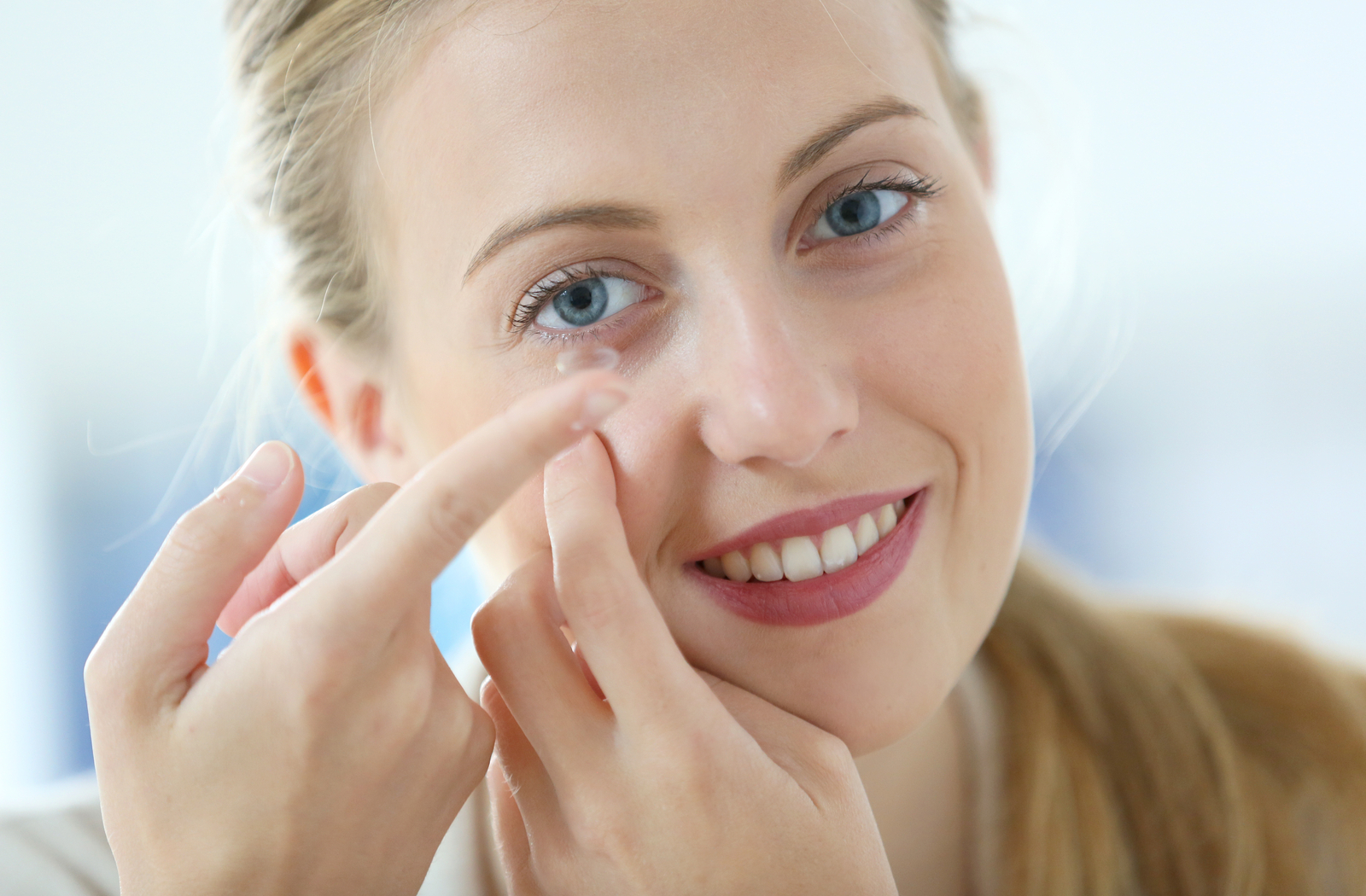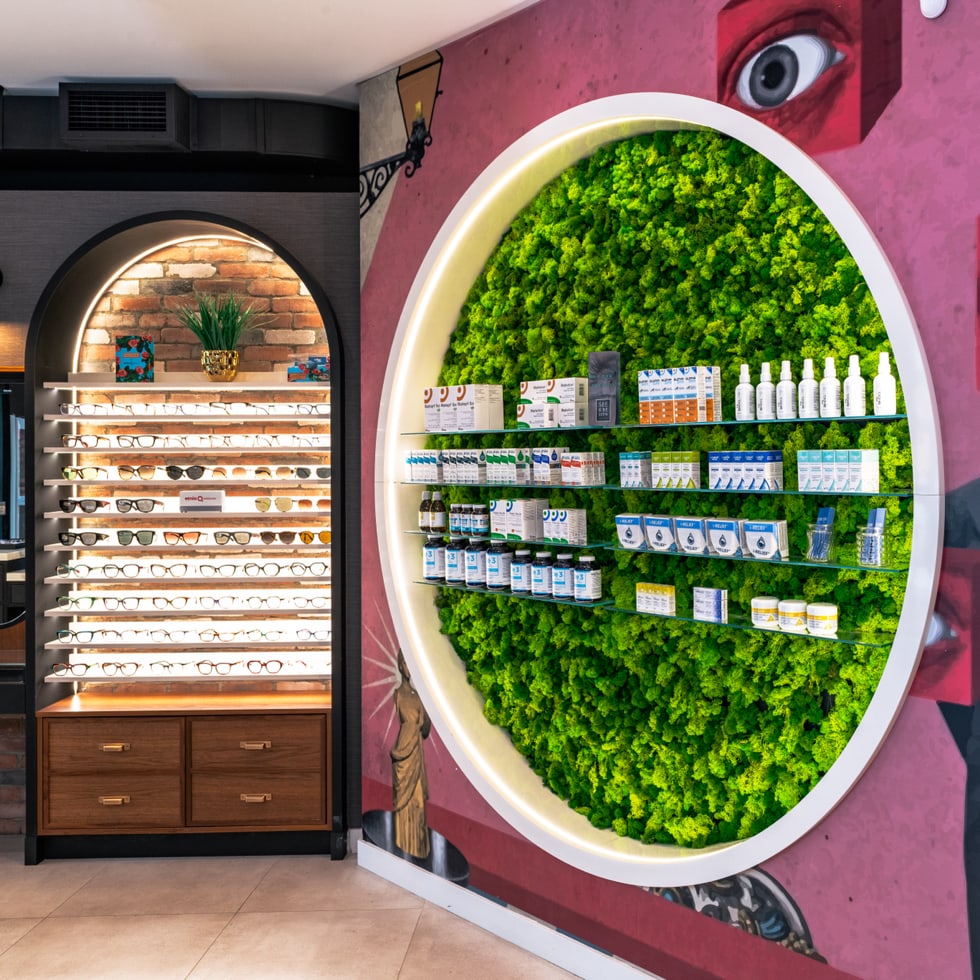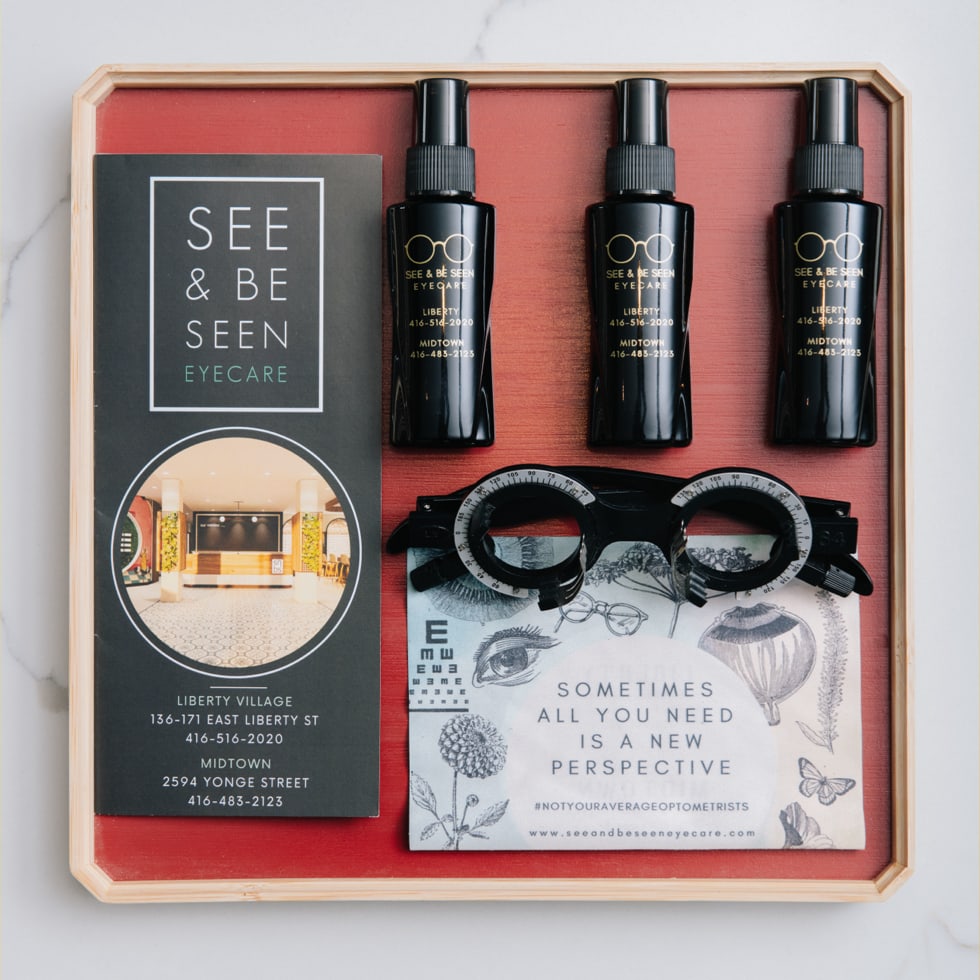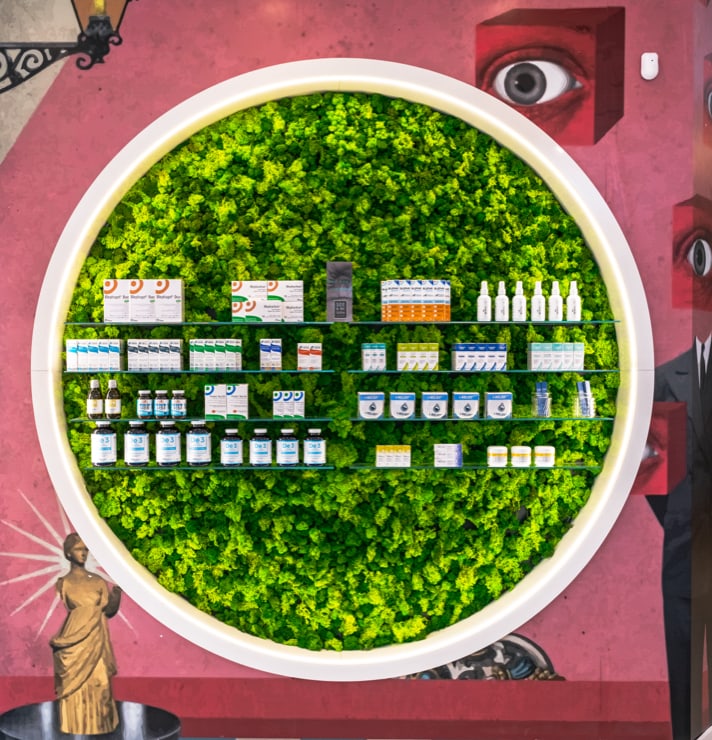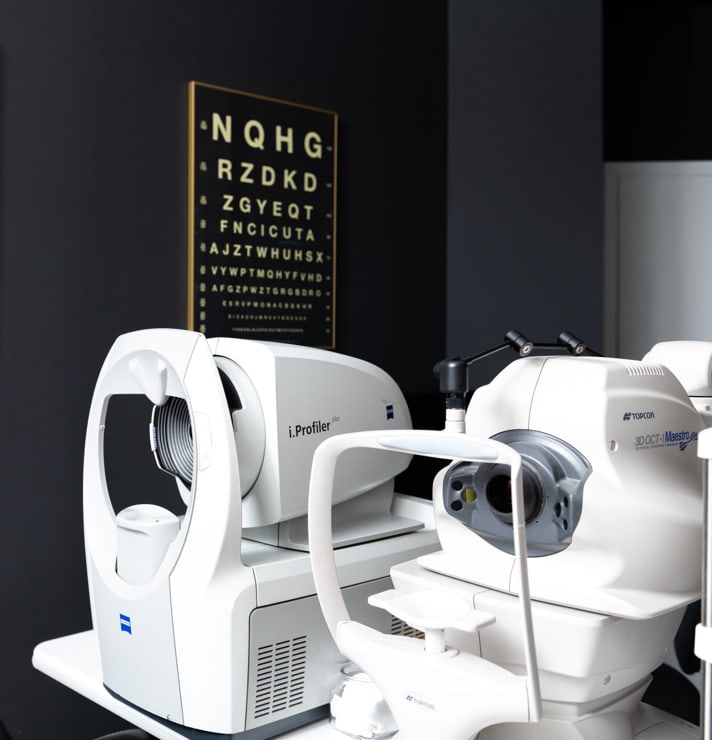Dry eyes can make wearing contact lenses difficult, causing discomfort and irritation. While contacts may feel uncomfortable with dry eyes, different lenses may feel better. If you wear contact lenses and have dry eyes, is there a better option available, such as daily disposable lenses?
Continue reading to learn more about dry eye disease and contact lenses, including if daily disposable contacts are better for dry eyes.
What Is Dry Eye Disease?
Dry eye disease is a chronic condition where the tears cannot effectively lubricate the eyes. Your tear film is responsible for keeping the eye’s surface clean and protected, but complications can arise and affect the production and quality of your tears.
Each layer of the tear film (oil, water, mucin) helps protect your eyes. The oily layer of the tear film prevents tears from evaporating too quickly, the watery layer keeps the eye hydrated and repels bacteria, and the mucin layer keeps tears on the eye.
When issues arise in one of the tear film’s layers, it can lead to several irritating symptoms. Common signs of dry eye disease include:
- Eyes that sting, burn, or scratch
- Stringy mucus in or around the eyes
- Light sensitivity
- Eye redness
- Foreign object sensation
- Difficulty wearing contact lenses
- Watery eyes
- Blurry vision
- Eye fatigue
What Causes Dry Eyes?
The cause of dry eyes is typically a lack of tear production or poor tear quality, leading to faster tear evaporation. Several factors can affect dry eye development, such as age, diet, medications, or medical conditions like blepharitis.
Tears lubricate your eyes each time you blink, but production can slow down for several reasons. The most common cause of decreased tear production is age—you naturally produce fewer tears as you get older. Besides age, certain medical conditions like Sjogren’s syndrome, hepatitis C, and lymphoma can affect tear production.
Increased tear evaporation occurs due to poor tear quality. The oily layer of the tear film can become compromised, causing your tears to dry out too quickly. Without adequate moisture, the eyes become inflamed and irritated.
A significant cause of dry eyes is meibomian gland dysfunction, which affects the glands providing the essential oil needed for your tears. Besides issues with the meibomian glands, other factors can lead to dry eyes, including:
- Eye allergies
- Eyelid problems (ectropion & entropion)
- Posterior blepharitis
- Vitamin A deficiency
- Wind, smoke, or dry air
If you have dry eyes, contact lenses can be uncomfortable to wear. The lenses may irritate your eyes, affecting your vision. What options do you have for contact lenses and dry eyes?
Contact Lenses & Dry Eyes
Lens material and how often you need to change your contacts are some of the factors to consider when choosing contact lenses. Rigid gas permeable lenses provide crisp, clear vision, but some people find them uncomfortable to wear. They’re effective and durable, but someone with dry eyes may struggle with them.
Soft contact lenses are popular because of their flexible and breathable material. A newer material used in soft contact lenses is silicone. These lenses help prevent protein deposits that cause dry eyes and allow more oxygen to reach the cornea and keep it healthy.
Soft contact lenses have extended wear or daily disposable options. Extended wear contact lenses require you to maintain and store them for multiple uses. You replace disposable lenses every day.
Scleral Lenses
A non-daily disposable contact lens option is scleral lenses. These large-diameter lenses extend past the cornea to rest on the white of your eye (the sclera). Scleral lenses are rigid gas permeable lenses designed to transform an irregular cornea into a smooth optical surface.
These lenses are a great option if you have dry eyes and struggle with contact lenses. Scleral lenses don’t touch the corneal surface, providing comfort. Additionally, the space between the lens and the cornea creates a fluid reservoir that helps provide consistent moisture to the eye’s surface.
Are Daily Contact Lenses Better for Dry Eyes?
Contact lenses can be difficult to wear for people suffering from dry eyes, but different types of contact lenses can provide greater comfort. Someone may recommend daily disposable lenses as an option for dry eyes.
Daily disposable lenses are soft and flexible, making them more comfortable. Additionally, a daily replacement schedule can help ensure your lenses always feel fresh. While daily disposable contact lenses can be effective for dry eyes, they aren’t always the best choice.
Everyone’s dry eye situation is unique, making some contact lenses more effective than others. Someone may struggle with daily disposable lenses but find another option that works better for their needs. Your optometrist can recommend the best contact lenses for your needs after completing an eye exam.

Find the Best Treatment for Your Dry Eye Needs
Dry eyes can be irritating and uncomfortable, but your eye doctor can help. Whether it’s with contact lenses or more specialized treatments, they can address the root cause of your dry eyes.
Contact your optometrist if you’re interested in dry eye relief.

